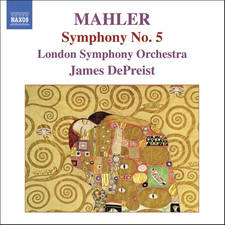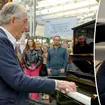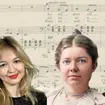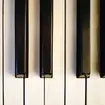‘We’re not numbers, we’re humans’ – pianist Lang Lang on the need for music education and opportunity
3 August 2021, 18:24 | Updated: 3 August 2021, 19:41
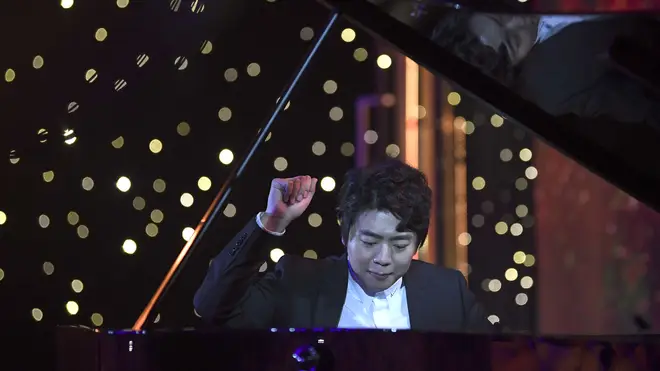
We talk to the superstar virtuoso about young students, music education, what needs to happen, and what he’s doing about it.
Pianist Lang Lang has mounted a passionate defence of music education in schools, in an exclusive interview with Classic FM.
We spoke to the Chinese pianist and educator just days after England’s universities regulator approved government cuts which will halve the per-student funding subsidy for music and arts subjects. This is part of a drive away from funding arts and music, towards the ‘Stem’ subjects of science, technology, engineering and mathematics, as well as medicine and healthcare.
Read more: When Lang Lang played piano for 2 billion people at the Beijing Olympics Opening Ceremony
We asked Lang Lang about why music deserves to be considered equally alongside science and mathematics in schools and higher education. The answer was “very simple”, he said.
“In the past, music has always inspired human beings to become much more unified, more synergised, and more emotional beings. Society has become more materialistic and practical, but music will bring back humanity to people,” he says.
“We cannot live in a world that’s just numbers. We’re not numbers, we’re humans... The more we get into a machinery world that’s less human, the more we need music, to bring balance to our lives.
“I think music gives us a great connection to our better feelings. In a way, it opens our third eye. In music, everyone is someone bigger and larger in life.”

Lang Lang 'Für Elise' (live at The Global Awards 2019)
He told us access to music education is a worldwide problem, with a range of political and economic factors between continents. “Here in China, it is slightly better because we must have music classes in every school, it’s a rule.”
“Music has encouraged me to be a better person. It has made me a much more open person, with better skills in communication, and better skills in reaching out to the world.”
Lang Lang was born in Shenyang, a province in northeast China, in 1982. There was music in his family, and he began to learn the piano at age three. He says as he grew, studied and developed, music was the way that he also learned of European culture.
“I [also] started to know about America, and Africa and South America. This really enlarged my vision of life and knowledge of cultural diversity. So from a very early age, I had already become a world citizen. I travelled the world, through music.”
Though Lang Lang identifies our fast-paced, material, and data-based lives as something that can get in the way of creativity and expression, he feels technology is at the heart of learning and sharing music, and the answer for problems in music education.
“I want to find a way to connect with a new generation of artists around the world. And we should use technology.”
The Lang Lang International Music Foundation was created in 2008, and upholds the belief that all children should have access to music education and opportunity, regardless of their background. Its Keys of Inspiration program is redefining what music education looks like in public schools, by providing Roland keyboards and a complete music curriculum to underfunded schools.
He says technology is transforming the way you can teach piano. Traditionally, a piano lesson always had to be one teacher and one student at one piano, he says. Now with digital technology, one teacher can teach a class of 30 simultaneously.

Lang Lang - Bach: Goldberg Variations, BWV 988: Variatio 30 Quodlibet. a 1 Clav.
The virtuoso says new software is helping unlock our imagination in piano lessons, opening stories in the music-making, and giving students access to virtual orchestras.
“These are incredible. I never had them as a kid. We have to find a new formula to learn piano and classical music, and realise classical music is a lot of fun.” He says you still have to have the hours of practice, “but it’s also learning a storyline”.
He also says how in just over a decade, the Internet and streaming have transformed access to classical music and the canon of great artists and recordings.
“In the past, to learn a piece I had to go into the library to find a recording. And sometimes I’d find all the recordings had been taken out by other students, and so I’d have to return with nothing. But now you can go to the Classic FM website, or any major social network and find what you’re after. And you have the perfect way to learn those great composers and musicians.”
And now, the artist who has well over 1 million followers on social media says, if a student has questions, they can ask the world’s greatest performers directly, via social media, YouTube comments, or in live online masterclass sessions.
“This is incredible, and this is something we’ve never had in the past”
But he also says the sheer amount of information online can be daunting to young players, and this is where he hopes the Lang Lang International Music Foundation can help.
“My foundation wants to find the best access points and the best ways to make kids feel the passion about music.”
He says there are two branches to what he wants to do. Firstly, to take music into underprivileged schools, into hospitals and other places of need. Secondly, he wants to help find masterclass, performance and chamber music opportunities for emerging players.
“We want to find those talented kids and give them the opportunity to shine on stage and shine in their communities.”
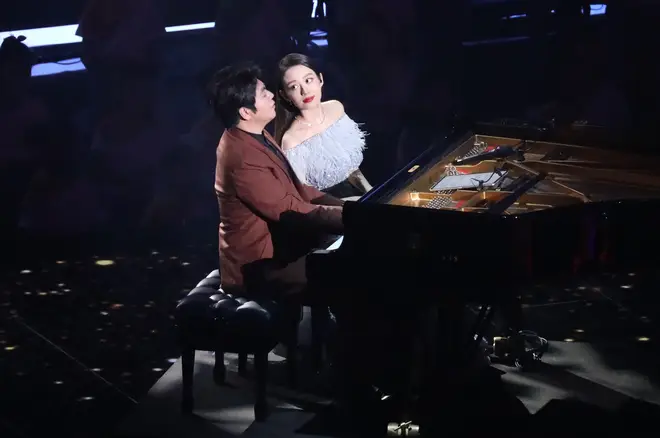
The Chinese keyboard superstar married Gina Alice Redlinger, who is also a classical pianist, in June 2019 in a glamorous ceremony in Paris. In January they announced the birth of their first child, a baby boy.
And the father was very proud to tell us of another music-lover in the family.
“My son is now five months old,” he says, “And he’s already loving to listen to classical music.”
“He’s a huge fan of Mozart and Bach. I believe he’s very musical and I’ll continue to give him great music to listen to – but that’s it. We like to give him more choices and possibilities in life, and let’s see what he likes.”
“In the end, he wants to be a pianist, I’ll support him with all my heart – and if not, I’ll support him with all my heart too.”
You can find out more about the Lang Lang International Music Foundation, what they are offering young musicians, and how you can support on their website.
